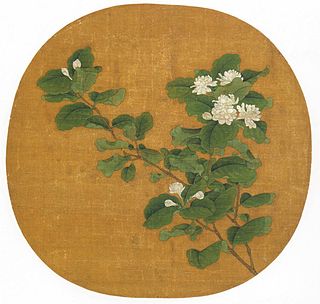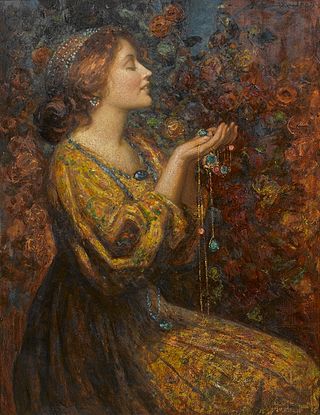
1987 (MCMLXXXVII) was a common year starting on Thursday of the Gregorian calendar, the 1987th year of the Common Era (CE) and Anno Domini (AD) designations, the 987th year of the 2nd millennium, the 87th year of the 20th century, and the 8th year of the 1980s decade.
Andrea is a given name which is common worldwide for both males and females, cognate to Andreas, Andrej and Andrew.
Nadia is a female name. Variations include Nadja, Nadya, Nadine, Nadiya, and Nadiia. Most variations of the name are derived from Arabic, Slavic languages, or both.
Aishwarya is a Hindu Indian and Nepali male or feminine given name, which means "prosperity" and "wealth".
Sharma is a Hindu Brahmin surname. The Sanskrit stem ṣárman- can mean 'joyfulness', 'comfort', 'happiness'. Sarma and Sarmah are alternative English spellings of the name, commonly used by Assamese Brahmins.

Samantha is a feminine given name.
Kira is a mostly feminine name of multiple origins and meanings.
Jana is the spelling of several unrelated given names. See Jaana for the Finnish and Estonian given name.
Preeti, also: Preethi, Preety, Preity, Priti, or Prethy, is a female given name in India.
Shetty is a surname originating from coastal Karnataka state of India. Found amongst the Bunt community, they were traditionally a part of the Nagavanshi Kshatriyas. The word 'Shetray' is anglicised as Shetty, meaning nobility.

Alyssa is a feminine given name with multiple origins. Alysa is an alternative spelling.
Prakash is a common given name in Asian, Hindu, Sanskrit names and widely used in Nepal, India and Sri Lanka. Prakash is generally used as a masculine name. The word prakash is derived from the Sanskrit word prakāśa, meaning "bright light" or "sun light" or "moon light" or "light", from a combination of pra meaning "forth" and kāśa meaning "shining." Hence the meaning "luminous; shining forth". Metaphorically, it designates the person as a source of enlightenment or wisdom.
Nikita is a common name in Eastern Europe and Greece. The Russian variant originated as a Greek name, and subsequently Russian name. The Ukrainian and Belarusian variants are Mykyta, and Mikita, respectively. The Romanian variant is Nichita. The name is derived from the Greek Nicetas. The Greek name entered Slavic onomastics by way of the veneration of Saint Nicetas the Goth in the Russian Orthodox Church.
Cara is an Irish feminine given name meaning "friend". It is also an English, German and Italian language feminine given name from the Latin cārus meaning “darling, beloved, dear, loved one”. It is also a Danish, Norwegian and Swedish feminine given name that is an alternate form of Kara as well as a short form of Carola, Carolina, and Oscara.

Jasmine is an English feminine given name.
Sora is a Korean feminine given name. The word itself is a native Korean word meaning "conch shell" and does not have corresponding hanja. However, since Korean given names can be created arbitrarily, it may also be a name with hanja. There are 45 hanja with the reading "so" and 14 hanja with the reading "ra" on the South Korean government's official list of hanja which may used in given names.
Bhambri is an Indian (Khatri) surname.

Kamilla and Kamila are feminine given names used in a number of languages and throughout history with roots in Slavic, Arabic, and South Asian languages and Latin.

Jewel is an English given name often given in reference to the English vocabulary word meaning gemstone. The word jewel comes from the Old French word jouel, meaning toy or delight, and was ultimately derived from the Latin term jocus. The name might have originated as an affectionate pet name or been inspired by other gemstone names also in fashion in the Anglosphere during the 19th century. The name is also sometimes a transferred use of the surname Jewel or Jewell, which comes from the Breton surname Judicaël. Some parents might have named their children after John Jewel, a 16th-century Bishop of Salisbury.
This page is based on this
Wikipedia article Text is available under the
CC BY-SA 4.0 license; additional terms may apply.
Images, videos and audio are available under their respective licenses.





